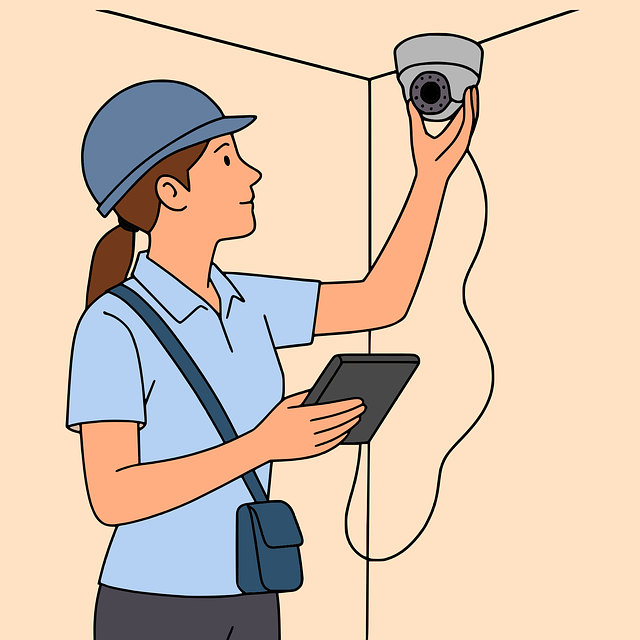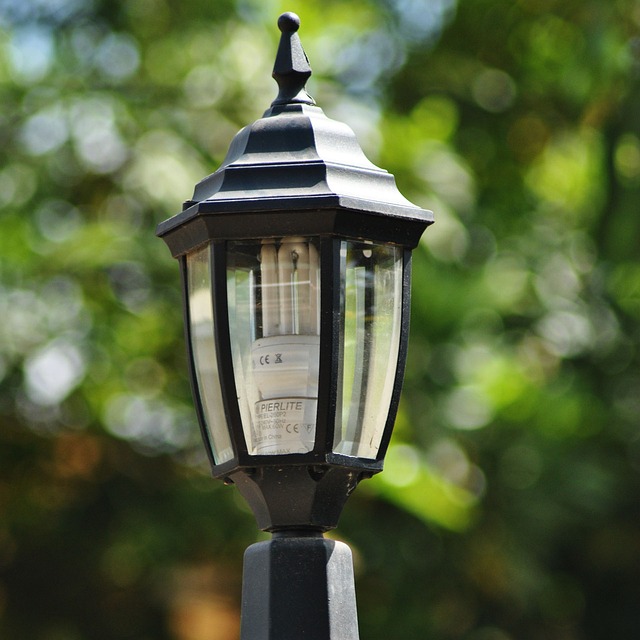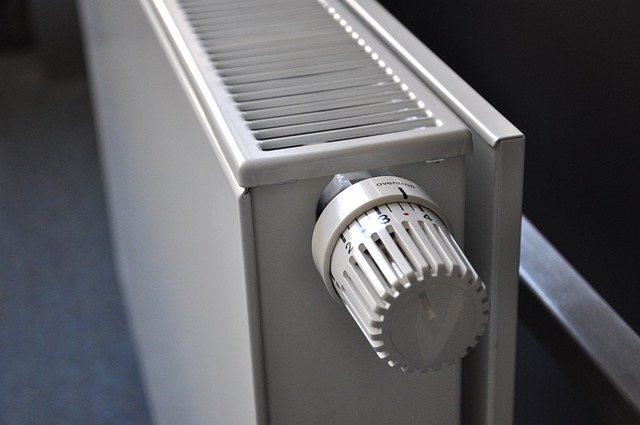Category: Residential Electrical Services Eugene Oregon
Residential Electrical Services Eugene Oregon: Illuminating Homes and Communities
Introduction
In the heart of Oregon, Eugene stands out as a city that prioritizes both environmental sustainability and modern infrastructure. At the forefront of this progress is its residential electrical services, which have evolved to meet the diverse needs of homeowners while integrating cutting-edge technology. This comprehensive guide aims to dissect the multifaceted world of residential electrical services in Eugene, exploring its historical roots, current practices, global impact, economic significance, technological innovations, regulatory framework, and future trajectory. By delving into these aspects, we will illuminate the critical role this sector plays in shaping sustainable and connected communities.
Understanding Residential Electrical Services Eugene Oregon: A Definition and Its Core Components
Definition: Residential electrical services refer to the design, installation, maintenance, and repair of electrical systems within private residences. This includes a wide range of tasks, from wiring homes to install lighting fixtures and appliances to ensuring safe and efficient power distribution.
Core Components:
-
Electrical Wiring and Installation: Involves running electrical cables through walls, attics, and floors to power outlets, switches, and fixtures. It encompasses both traditional copper wiring and emerging technologies like fiber optics for high-speed internet connectivity.
-
Lighting Systems: Comprises the installation of various lighting types, including incandescent, LED, and smart lighting systems. This also includes the integration of dimmers, motion sensors, and automated controls to enhance energy efficiency and user experience.
-
Home Automation: Integrates technology to control and monitor various home appliances, security systems, heating/cooling units, and entertainment systems remotely. Smart homes are a prime example, where voice commands or smartphone apps can adjust lighting, temperature, and security settings.
-
Safety Measures: Crucial aspects include the installation of circuit breakers, ground fault circuit interrupters (GFCIs), and smoke detectors to protect against electrical fires and shocks. Regular inspections and maintenance ensure these safety features function optimally.
Historical Context:
- The history of residential electrical services in Eugene mirrors the broader national trend, dating back to the late 19th century when electricity began transforming homes. Early installations were rudimentary, with open wiring and few safety measures.
- By the early 20th century, standardized wiring practices and the introduction of circuit breakers marked a significant advancement. The post-World War II era saw widespread adoption of electric appliances, further driving the need for organized electrical services.
- In Oregon, the 1970s brought heightened awareness of energy conservation, leading to stricter building codes and an emphasis on efficient lighting and wiring practices. Today, Eugene’s residential electrical services reflect a blend of historical evolution and modern innovations.
Global Impact and Trends: A Connected World
The global reach of residential electrical services is profound, with technology and standards sharing across continents. Key trends shaping this sector include:
-
Smart Home Revolution: The adoption of smart home devices has skyrocketed globally, fueled by the internet of things (IoT) revolution. Smart lighting, security systems, and appliances are becoming mainstream, driven by consumer demand for convenience and energy efficiency.
-
Renewable Energy Integration: A growing emphasis on renewable energy sources like solar and wind power is transforming residential electrical systems. Many homes in Eugene are now equipped with solar panels, feeding excess energy back into the grid or powering individual residences.
-
Global Standards Harmonization: International organizations, such as the International Electrotechnical Commission (IEC), play a crucial role in harmonizing electrical standards. This ensures that products and practices in one country align with those globally, facilitating trade and interoperability.
Regional Impact:
| Region | Key Trends | Challenges |
|---|---|---|
| North America | Widespread adoption of smart home technology, especially in the US; focus on energy-efficient appliances. | High costs of implementing smart grid infrastructure; regulatory disparities between states. |
| Europe | Stricter building codes and energy efficiency standards; significant investment in renewable energy integration. | Concerns over data privacy due to IoT devices; high initial installation costs for smart systems. |
| Asia-Pacific | Rapid urbanization driving demand for modern electrical services; government incentives for renewable energy adoption. | Overburdened power grids in densely populated areas; need for efficient distribution networks. |
Economic Considerations: Market Dynamics and Impact
Residential electrical services are a vital component of the local economy, generating employment opportunities, stimulating investment, and contributing to overall economic growth.
-
Market Size: According to industry reports, the global residential electrical market size was valued at USD 175.9 billion in 2020 and is projected to grow at a CAGR of 4.8% from 2021 to 2028. In Oregon, the market is smaller but still significant, with Eugene contributing a substantial share.
-
Employment: The sector employs a range of skilled workers, including electricians, technicians, installers, and engineers. As technology advances, there is an increasing demand for specialists in smart home systems, renewable energy integration, and electrical automation.
-
Investment Patterns: Homeowners invest in residential electrical services for various reasons, primarily to enhance comfort, security, and property value. Government incentives and grants for energy-efficient upgrades further stimulate investment. In Eugene, local initiatives promoting solar panel installations have spurred economic activity within the sector.
-
Economic Impact: The economic ripple effect of this sector is substantial. Electrical service providers contribute to the local economy through supplier networks, construction projects, and business services. Moreover, investments in efficient electrical systems can reduce energy costs for homeowners, freeing up disposable income for other expenditures.
Technological Advancements: Driving Innovation Forward
Technological innovations are at the heart of transforming residential electrical services, offering improved efficiency, safety, and convenience.
-
Smart Grid Technology: The development of smart grids enables two-way communication between power suppliers and consumers. This allows for real-time monitoring, efficient load management, and better integration of renewable energy sources. Eugene’s local utility companies have begun implementing smart meter systems to enhance grid efficiency.
-
Renewable Energy Solutions: Advances in solar panel technology, wind turbines, and energy storage systems are making renewable energy more accessible and affordable for homes. Homeowners in Eugene can now choose from various options, including rooftop solar panels and community-based renewable energy projects.
-
Home Automation Systems: The market for home automation devices is booming. Smart speakers, digital assistants, and integrated security systems offer unprecedented control over home environments. Local companies in Eugene are emerging as leaders in developing custom smart home solutions.
-
Artificial Intelligence (AI) and Machine Learning: AI is revolutionizing electrical maintenance by predicting equipment failures and optimizing energy distribution. Machine learning algorithms can analyze vast amounts of data to identify patterns, enabling proactive maintenance and improved system performance.
Policy and Regulation: Navigating the Legal Landscape
The residential electrical services sector operates within a stringent regulatory framework designed to ensure safety, fairness, and environmental sustainability.
-
Building Codes: Local governments, such as the City of Eugene, enforce building codes that dictate minimum standards for electrical installations. These codes cover aspects like wiring methods, safety devices, and energy efficiency requirements. Compliance is mandatory to obtain building permits.
-
Licensing and Certification: Electricians and specialized technicians must be licensed by the state to practice in Oregon. Licensing ensures a certain level of competency and provides consumers with assurance when hiring electrical service providers.
-
Environmental Regulations: The sector faces environmental regulations related to waste disposal, especially for obsolete electrical equipment and hazardous materials. Recycling programs and responsible disposal methods are mandatory to protect natural resources.
-
Energy Efficiency Standards: Oregon has set energy efficiency standards for buildings, encouraging the use of efficient appliances, lighting, and heating systems. Electrical service providers play a vital role in helping homeowners meet these standards.
Challenges and Criticisms: Overcoming Obstacles
Despite its advancements, the residential electrical services sector faces several challenges that require proactive solutions.
-
Safety Concerns: The complex nature of electrical work carries inherent risks. Old wiring, faulty installations, or inadequate maintenance can lead to electrical fires, shocks, or other hazards. Regular inspections and strict adherence to safety standards are essential to mitigate these risks.
-
Skills Gap: As technology evolves, there is a growing demand for skilled workers with specialized knowledge in areas like smart home integration and renewable energy systems. Addressing the skills gap requires investment in training programs and partnerships between educational institutions and industry leaders.
-
High Initial Costs: Implementing certain technologies, such as solar panels or advanced home automation, can be expensive for homeowners. Offering incentives, grants, or affordable financing options can encourage adoption and reduce financial barriers.
-
Data Privacy and Security: With the proliferation of smart home devices, concerns about data privacy and cybersecurity have heightened. Service providers must ensure that connected devices are secure and protect consumer data from unauthorized access.
Case Studies: Real-World Success Stories
1. Eco-Friendly Retrofitting in West Eugene:
A local non-profit organization partnered with a team of skilled electricians to retrofit older homes in West Eugene with energy-efficient systems. This initiative focused on upgrading outdated wiring, installing solar panels, and integrating smart thermostats. The project not only reduced carbon footprints but also provided financial relief to low-income homeowners through subsidized rates. The success lay in the collaboration between community organizations, skilled tradespeople, and local utility companies, demonstrating that sustainable electrical solutions can benefit all segments of society.
2. Smart City Integration in Downtown Eugene:
The city of Eugene launched a pilot project to integrate smart street lighting throughout downtown. The new system offers adjustable brightness and color temperatures, reducing energy consumption by 50%. Additionally, motion sensors ensure lights are on only when needed. This case study highlights the successful implementation of smart grid technologies in urban settings, setting the stage for further developments in residential applications.
3. Community-Owned Renewable Energy Co-op:
A group of environmentally conscious homeowners in a suburban Eugene neighborhood formed a renewable energy co-op to install a community solar farm. By pooling resources and sharing the benefits, they were able to reduce individual costs and increase local clean energy capacity. This cooperative approach not only promotes sustainable practices but also fosters a sense of community ownership over their electrical infrastructure.
Future Prospects: Illuminating Tomorrow
The future of residential electrical services in Eugene is poised for further innovation and growth, driven by emerging technologies and changing consumer preferences.
-
Wider Adoption of Renewable Energy: As costs continue to decline, renewable energy sources will become even more attractive for residential use. Solar, wind, and hydropower are expected to see increased adoption, reducing reliance on traditional grid electricity.
-
Enhanced Home Automation: The integration of AI and IoT will take home automation to new heights. Voice-controlled smart homes will be the norm, with personalized settings and predictive comfort levels. Advanced security systems, integrated with local law enforcement, will offer unprecedented peace of mind.
-
Microgrids and Energy Storage: Microgrid technology enables neighborhoods or even individual homes to generate and store their energy, enhancing resilience during power outages. As energy storage solutions improve, homeowners will have greater control over their electricity supply.
-
Digital Twin Technology: The concept of digital twins—virtual replicas of physical systems—will revolutionize electrical maintenance. By creating digital models of residential wiring and equipment, service providers can predict failures, optimize performance, and offer proactive solutions.
Conclusion: Illuminating a Sustainable Future
Residential electrical services in Eugene, Oregon, represent a dynamic sector that is transforming homes and communities. From its historical roots to the cutting-edge technologies of today, this field has evolved to meet the evolving needs of residents while promoting sustainability and efficiency. By embracing global trends, navigating regulatory landscapes, and addressing challenges head-on, Eugene’s electrical service providers are illuminating a brighter future for all.
FAQ Section: Answering Common Questions
Q: How do I know if my home’s electrical system is up to code?
A: Regular inspections by licensed electricians can ensure your home’s electrical system complies with local building codes. Look for professionals who offer code compliance assessments as part of their services.
Q: What are the benefits of installing solar panels in my home?
A: Solar panels reduce electricity costs, minimize environmental impact, and may qualify you for tax incentives or rebates. They also contribute to energy independence and resilience.
Q: How can I make my smart home more secure?
A: Implement strong passwords, enable encryption, and regularly update firmware for all connected devices. Use a dedicated network for IoT devices to isolate them from other home networks for enhanced security.
Q: Are there any government programs to help with the cost of home energy upgrades?
A: Yes, various state and local programs offer incentives, grants, or low-interest loans for energy-efficient home improvements. Check with your local government or utility company for available options.
Q: What should I do if my electrical panel is making strange noises?
A: Strange sounds from your electrical panel could indicate loose connections, damaged components, or overheating. Immediately turn off the power at the main circuit breaker and contact a licensed electrician for inspection and repair.
Comprehensive Electrical Safety: Lighting Installation in Eugene OR

A professional electrical inspection in Eugene, OR, evaluates wiring and systems across all rooms, c…….
Modernize Your Home: Electrical Panel Upgrades in Eugene

Upgrading old electrical panels in Eugene homes boosts safety and energy efficiency, mitigating fire…….
Transform Your Eugene Space with Lighting Installation

Lighting installation services in Eugene, OR, combine artistry and functionality to enhance spaces……..
Comprehensive Electrical Inspections: Uncovering Safe Home Wiring in Eugene OR

Comprehensive electrical inspections in Eugene, OR require understanding home wiring systems, with a…….
Comprehensive Electrical Safety Check: Eugene OR Smoke Alarm Wiring Guide

Evaluating smoke alarm wiring in Eugene, OR homes is a critical part of electrical inspections. Insp…….
Top Eugene, Oregon Electrical Contractors for Residential Repairs

When hiring an electrical contractor in Eugene, Oregon for residential repairs, prioritize licensed…….
Residential Electrician Eugene OR: Circuit Breaker Expertise Essential

Residential circuit breakers in Eugene, Oregon homes are vital for electrical safety and preventing…….
Tailored Electrical Safety & Efficiency with Eugene Oregon’s Local Experts
Expert Residential Electrician Services in Eugene Oregon

Choosing a qualified residential electrician in Eugene, Oregon is crucial for safe and efficient hom…….

